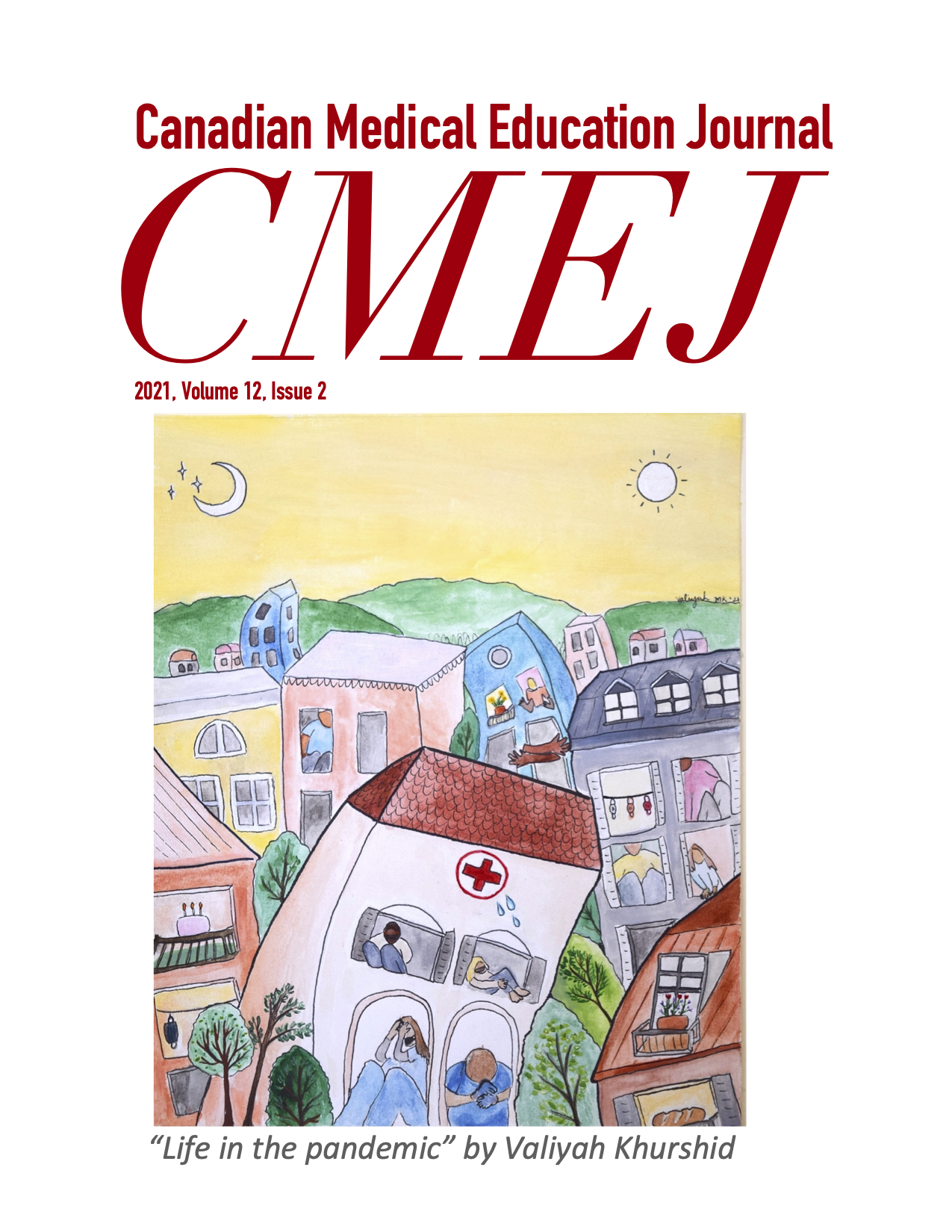Exploring resident perceptions of initial competency based medical education implementation
DOI:
https://doi.org/10.36834/cmej.70943Abstract
Background: Competence by design (CBD) is a nationally developed hybrid competency based medical education (CBME) curricular model that focuses on residents’ abilities to promote successful practice and better meet societal needs. CBD is based on a commonly used framework of five core components of CBME: outcome competencies, sequenced progression, tailored learning experiences, competency-focused instruction and programmatic assessment. There is limited literature concerning residents’ perceptions of implementation of CBME.
Objective: We explored resident perceptions of this transformation and their views as they relate to the intended framework.
Methods: We recruited residents enrolled in current CBME implementation between August 2018 and January 2019. We interviewed residents representing eight disciplines from the initial two CBME implementation cohorts. Inductive thematic analysis was used to analyse the data through iterative consensus building until saturation.
Results: We identified five themes: 1) Value of feedback for residents; 2) Resident strategies for successful Entrustable Professional Activity observation completion; 3) Residents experience challenges; 4) Resident concerns regarding CBME; and 5) Resident recommendations to improve existing challenges. We found that while there was clear alignment with residents’ perceptions of the programmatic assessment core CBME component, alignment was not as clear for other components.
Conclusions: Residents perceived aspects of this transformation as helpful but overall had mixed perceptions and variable understanding of the intended underlying framework. Understanding and disseminating successes and challenges from the resident lens may assist programs at different stages of CBME implementation.
Downloads
Published
How to Cite
Issue
Section
License
Submission of an original manuscript to the Canadian Medical Education Journal will be taken to mean that it represents original work not previously published, that it is not being considered elsewhere for publication. If accepted for publication, it will be published online and it will not be published elsewhere in the same form, for commercial purposes, in any language, without the consent of the publisher.
Authors who publish in the Canadian Medical Education Journal agree to release their articles under the Creative Commons Attribution-Noncommercial-No Derivative Works 4.0 Canada Licence. This licence allows anyone to copy and distribute the article for non-commercial purposes provided that appropriate attribution is given. For details of the rights an author grants users of their work, please see the licence summary and the full licence.










